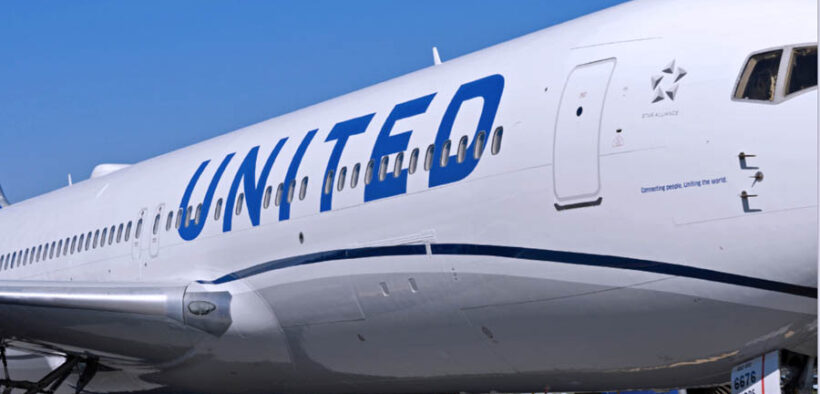United Airlines partners with small freighter for Puerto Rico pharma exports

A new GlobalX charter service increases San Juan–Chicago cargo capacity for temperature-sensitive medical goods.
United Airlines recently set up a quasi-service charter to feed its Chicago hub with pharmaceutical shipments from Puerto Rico that are heading overseas and to health care companies in the Midwest.
For the first time, United Cargo is supplementing capacity with a narrowbody freighter to expand its network and partnering with a freight tech startup airline. Miami-based Global Crossing Airlines (GlobalX), a startup carrier with four Airbus A321 converted freighters, is transporting shipments tendered by United’s cargo division from San Juan to Chicago O’Hare International Airport.
Three weekly flights — scheduled for Mondays, Wednesdays and Fridays — offer 25 tons of cargo capacity in each direction, GlobalX said in a press release.
United Cargo is taking commercial responsibility for the northbound leg of GlobalX’s service to Chicago on behalf of Airblox, a new digital exchange where airlines sell future blocks of cargo space, or even entire aircraft, to freight forwarders that need capacity. Shipments from Puerto Rico will be transferred to aircraft bound for the Asia-Pacific region, Europe and South America.
Using direct cargo jets instead of the limited lower-deck space on passenger aircraft gives customers more capacity and better shipping options.
United previously transported pharmaceutical shipments to Chicago via Newark on a Boeing 767, where they were placed in a refrigerated truck for overnight delivery, according to the report. During certain months, United flies wide-body passenger aircraft between Newark and Chicago that carry transshipment cargo from Puerto Rico.
United Airlines is one of the largest providers of air transport for temperature-controlled pharmaceutical shipments. In its 2024 financial results, the company reported cargo revenue of $1.74 billion, up 16.6% from $1.49 billion the previous year. United transported nearly 1.3 billion pounds of cargo in 2024, including approximately 43 million pounds of medical shipments.
Last year, United operated about 110 tons of wide-body capacity per week out of Puerto Rico to the mainland U.S., with 90% of it routed to Newark Liberty International Airport, according to Rotate data.
The bulk of what United Cargo transports from San Juan consists of pharmaceuticals and medical devices, according to FreightWaves, a news outlet specializing in global supply chain and freight market intelligence.
Puerto Rico pharma exports
Puerto Rico is the top bioscience manufacturing center in the U.S. by export volume, according to the Puerto Rico Life Sciences Air Cargo Community (PRLSACC). A dozen of the world’s 20 top-grossing pharmaceutical companies operate on the island, and eight of the 15 top-selling biopharma products are manufactured in Puerto Rico. Many leading medical device makers, including Medtronic, CooperVision and Boston Scientific, also maintain facilities on the island.
In 2024, Puerto Rico exports totaled $24.7 billion, up 9.7% from 2023, according to the U.S. Bureau of Labor Statistics. Of that, $20.2 billion stemmed from the pharmaceutical and medical manufacturing sectors.
The PRLSACC is forecasting a 24% year-on-year increase in life sciences exports and an annual 30% rise in temperature-controlled exports from 2024 to 2027. It also projects a 14% annual increase in medical device exports.
Revenue in Puerto Rico’s pharmaceutical market is expected to surpass $376 million in 2025, Statista reported.
Growing demand for pharmaceutical logistics
Rising demand for pharmaceutical products throughout the world is fueling growth in the pharmaceutical logistics market, which includes the specialized handling, storage, transportation and distribution of these sensitive goods. Many pharmaceutical products — such as certain vaccines, biologics and advanced therapies — require that they be stored and transported at specific temperatures to maintain efficacy, further boosting this market.
For example, cell and gene therapies (CGTs) typically require ultra-cold storage below -80 degrees Celsius (-112 degrees Fahrenheit). A surge in metabolic disorder medications, including GLP-1 weight loss drugs, is also driving demand for cold chain solutions.
The sensitivity of these therapies calls for robust, seamless cold chain logistics. As a result, the global pharmaceutical logistics market, valued at $111.45 million in 2024, is projected to reach $181.07 million by 2033, according to a study published by Towards Healthcare.












